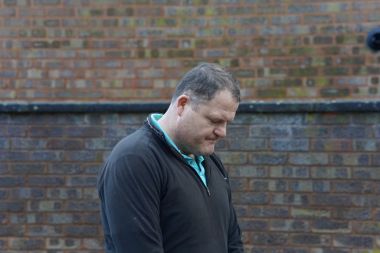Silent prayer outside abortion clinics is 'not necessarily' a crime

People who pray silently outside abortion clinics may not necessarily be committing a crime, the Crown Prosecution Service has said.
It has published guidance in relation to new 'safe access zones' that came into effect outside abortion clinics on 31 October.
The buffer zones establish a 150-metre boundary around all clinics and hospitals offering abortion services in England and Wales.
They make it a criminal offence to "influence any person's decision to access or facilitate abortion services at an abortion clinic", obstruct individuals from accessing abortion clinics, or "cause harassment, alarm or distress to any person in connection with a decision to access, provide or facilitate abortion services at an abortion clinic".
The Home Office said that the police and prosecutors "will consider each case individually based on the evidence" but that the regulations "could also cover prayer", including "silent prayer", vigils and "any behaviour where someone is intentionally trying to – or recklessly acting in a way that might – influence a person accessing the service".
Breaking the new laws carries an unlimited fine.
The guidance from the Crown Prosecution Service suggests that praying silently within an abortion clinic buffer zone may not always be treated as a criminal act.
"A person who carries out any of these activities [including silent prayer] within a safe access zone will not necessarily commit a criminal offence," it states.
"Prosecutors will need to consider not only all the facts and circumstances of the particular conduct but also the context in which the conduct takes place."
The guidance has been issued just weeks after the UK's first conviction for silent prayer. Adam Smith-Connor was sentenced to a conditional discharge and ordered to pay £9,000 in costs for praying silently for a few minutes within an abortion clinic buffer zone in Bournemouth.
Jeremiah Igunnubole, Smith-Connor's legal counsel at the Alliance Defending Freedom UK, has expressed concern that the new laws will be used to crack down on silent prayer or innocent, consensual conversations between adults.
"The right to hold a consensual conversation, or engage in silent prayer, constitute the most basic of human rights. They are protected robustly by international legal provisions relating to freedom of thought and speech," he said.
"The entire premise of censorial buffer zone legislation is that women should be able to choose to access abortion without hindrance. The legal elephant in the room should be obvious to see. If the law states that a woman can choose to abort their unborn child without hindrance, even the 'hindrance' of lawful alternatives to abortion, how can the law criminalise women when they choose to engage in lawful, harmless and consensual conversations?
"This is a watershed moment for British freedoms, and one the public must not take lightly. A failure to protect thought and peaceful speech anywhere creates a threat to these rights everywhere. Buffer zones or otherwise, we should uncompromisingly safeguard the rights on which our democracy is based."











